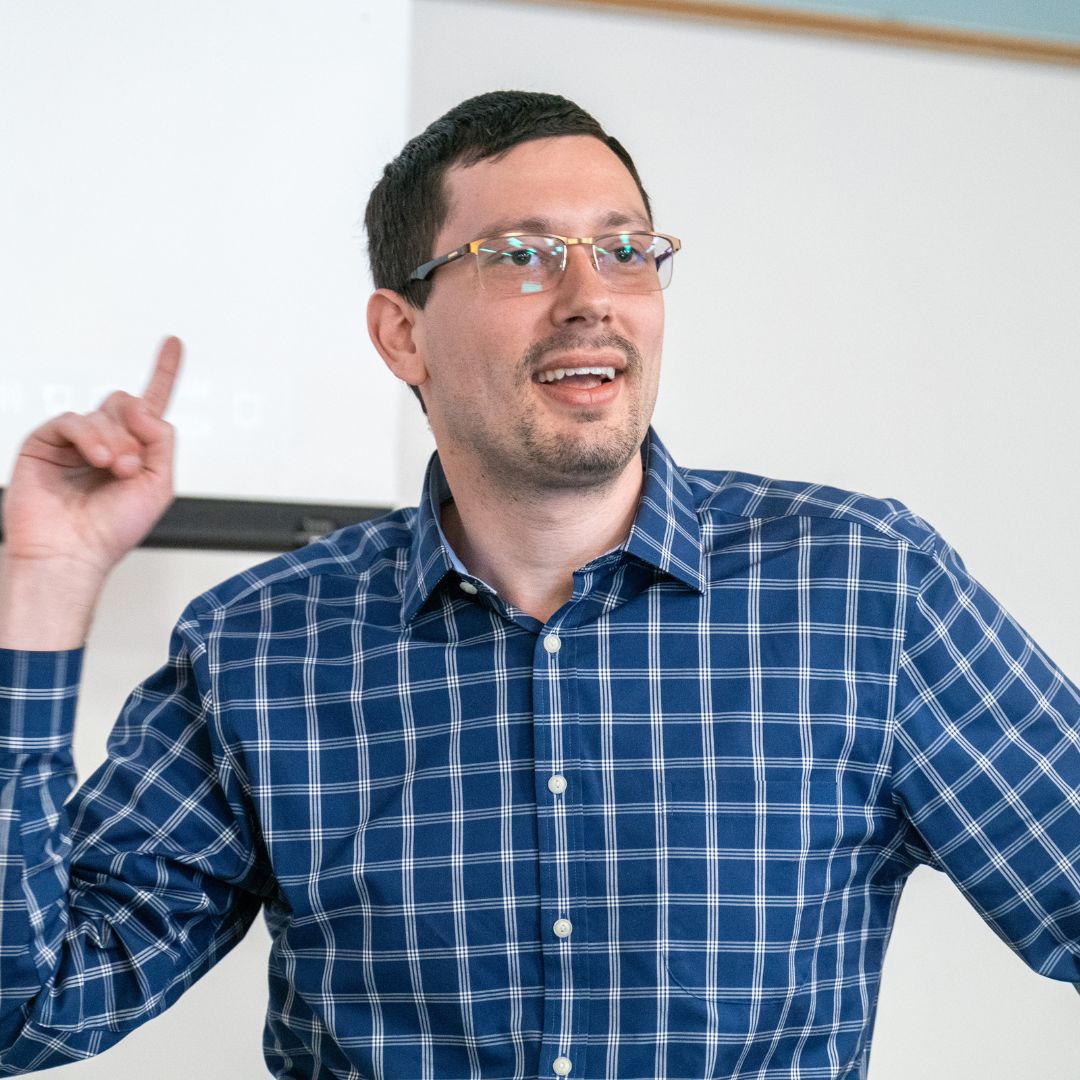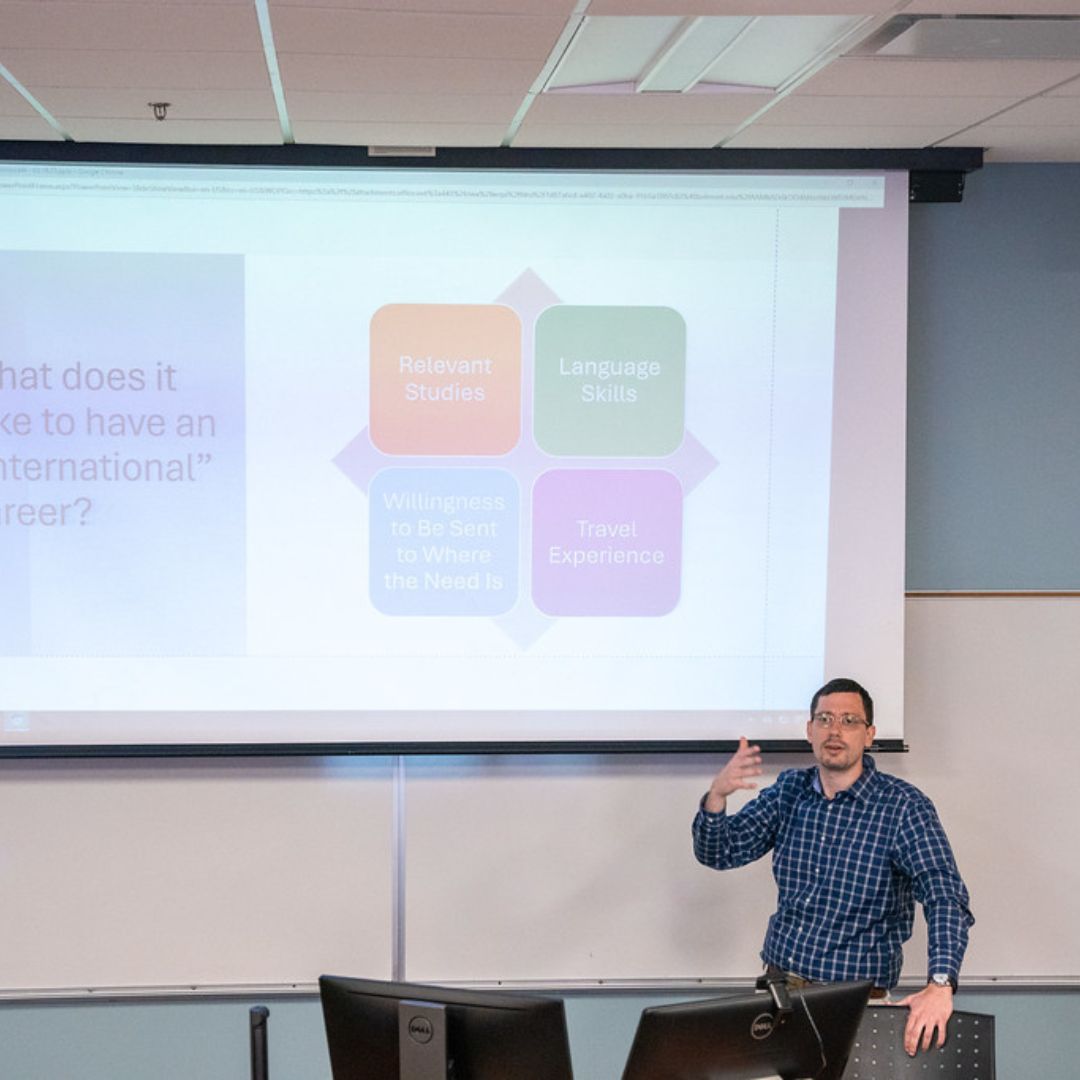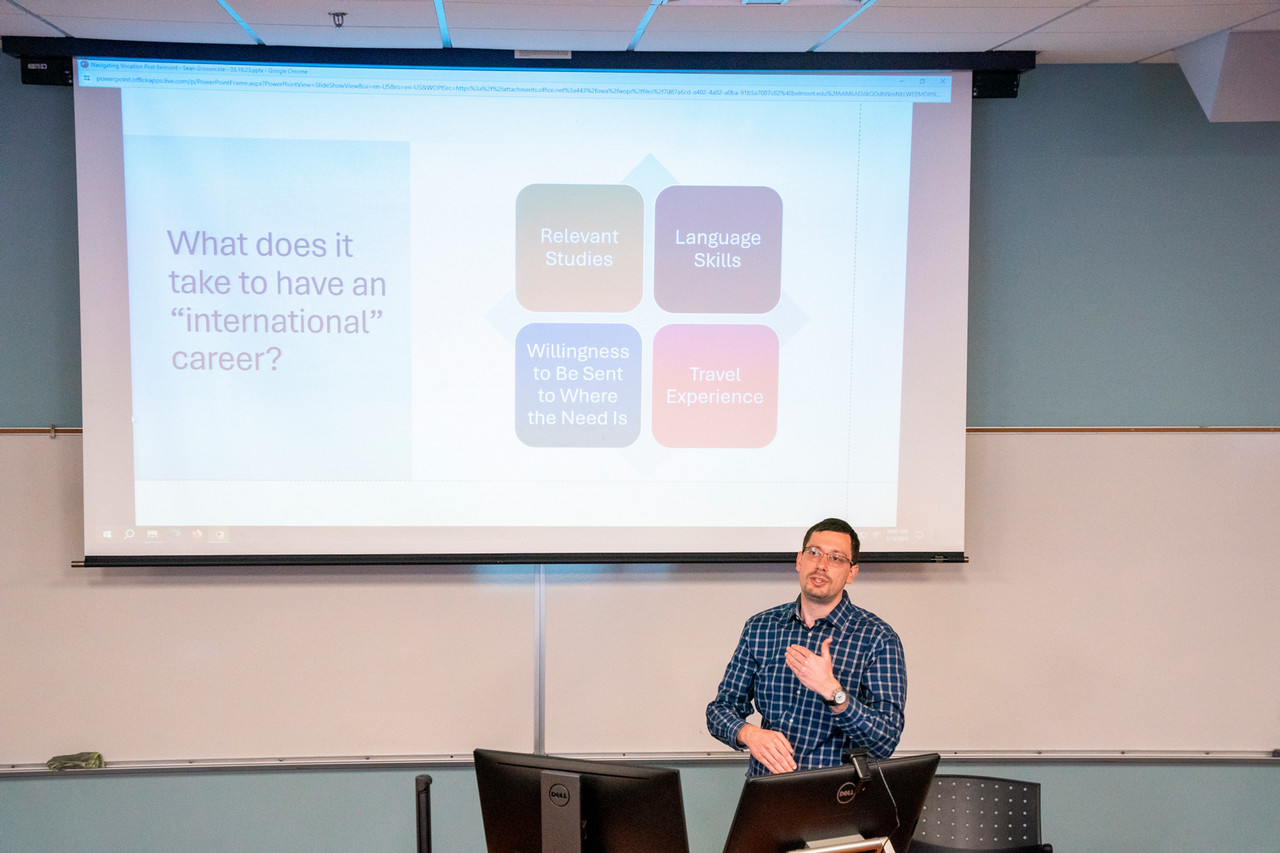Belmont alumnus, Lumos Traveler and Presidential Scholar Sean Grossnickle (’19) recently returned to campus to teach students interested in international careers accessible ways to travel the world while gaining professional experience. Now an International Economist for the International Trade Administration, Grossnickle discovered a variety of avenues to visit other countries and invest globally in people with little to no out-of-pocket expenses.
Grossnickle's professional travels have taken him to Canada, the Dominican Republic, Honduras, Belgium, Senegal, France, Moldova and the Democratic Republic of the Congo among other countries to date.
“Remember, there are people who will pay you to travel,” he said. “For some people, finances are a barrier, but there are ways to travel where you actually make money — you just have to find them.”
Relevant studies, language skills, travel experience and a willingness to be sent where needed are four key criteria that organizations factor in when looking to fill international roles, whether those roles are just for a few days, months or years.
“Don’t underestimate the benefit of short-term opportunities,” Grossnickle advised. “Look into options such as language immersion programs, mission trips and semester-long study abroad trips.”
Grossnickle also covered a variety of paid travel opportunities that span longer periods of time, one of which included seeking out internships with local or federal governments. Many times, foreign governments will offer internships to students in the United States that may include future travel opportunities to that government’s country.
“For example, foreign governments hire locals to have expertise in the local market,” he explained. “We do this too. The US Embassies abroad hire locals from that country to be their translators, help with cultural references and be the boots on the ground to really make those connections. When I was in New York City, I interned with the Canadian government at their trade office. Just so you all know, it looks really bad when foreign governments hire unpaid interns because it seems like they’re taking advantage of the locals, so they usually pay very well.”
Other large-scale options discussed included local and federal government internships abroad, working in international development organizations to help the poorest areas of low-income countries and the Peace Corps, an organization that Grossnickle could not recommend more.
“The Peace Corps is fabulous for several reasons,” he began. “First, it’s a paid international entry level position. I cannot stress how rare that is. Secondly, it’s a paid international entry level position with some of the best language instruction in the world with cultural teachers and guides. Finally, it’s the name — people respect the Peace Corps. It doesn’t matter if it is in the private sector, nonprofit or government, they respect the Peace Corps.”
 Grossnickle’s experience with the Peace Corps swung the pendulum heavily in his favor when interviewing for subsequent job opportunities. Once employers at Caterpillar Financial and his internship in Belgium saw the Peace Corps on his resume, Grossnickle instantly emerged as the leading candidate.
Grossnickle’s experience with the Peace Corps swung the pendulum heavily in his favor when interviewing for subsequent job opportunities. Once employers at Caterpillar Financial and his internship in Belgium saw the Peace Corps on his resume, Grossnickle instantly emerged as the leading candidate.
“The guy from Caterpillar picked up the phone when I called him and told me ‘We want you,” Grossnickle detailed. “Before I even had an interview, he told me if I could do the Peace Corps, I could do this job. Similarly with my internship in Belgium, they told me from the jump that they wanted me because if I did the Peace Corps, I must be a good person.”
Finally, Grossnickle touched on his time as a Lumos Traveler Award recipient, a university-distributed grant that enables students to embark on a self-designed international working adventure. The grant empowers students to immerse themselves in another culture for a minimum of four months to deepen their passion and understanding of issues that are personal or interesting to them.
“Again, people will pay for you to travel. Do you still remember that from earlier?” he repeated. “The world is more accessible than ever. Travel may not be for everyone and the isolation can be difficult, so consider the long-term lifestyle you want. But there is no shortage of opportunities out there for each and every one of you.”

